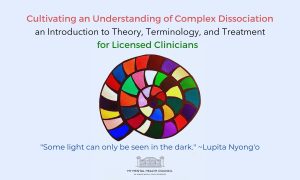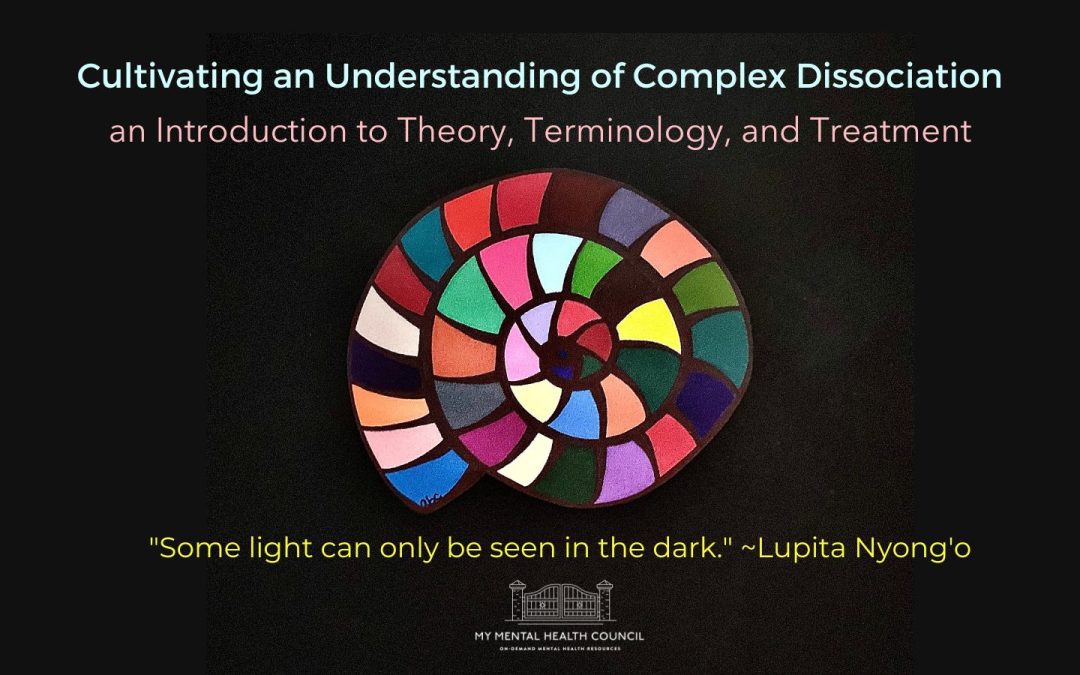⟡ WHO should take this course? ⟡
⟡ THOSE WITH A DISSOCIATIVE DISORDER ⟡
⟡ THOSE WHO LOVE SOMEONE WITH A DISSOCIATIVE DISORDER ⟡
invested in deepening their understanding of complex trauma, dissociation, and dissociative identity disorder.
IF YOU ARE A LICENSED MENTAL HEALTH CLINICIAN,
enroll in the similarly-titled version of this course with THIS logo:

⟡ WHY should I take this course? ⟡
-
to increase your knowledge and ability to communicate about trauma and dissociation
-
to increase your knowledge and understanding of potential treatment options and outcomes
⟡ WHAT can I expect from taking this course? ⟡
-
structured content presentation using an online learning management system (LMS) that is similar in functionality to Canvas and Blackboard including self-printed handouts accompanying each lesson.
-
self-paced access to content presented through virtual lectures with the ability to pause and re-watch as needed.
⟡ Recommendations Before You Begin ⟡
-
Watch (or re-watch if it’s been a while!) Disney/Pixar’s movie Inside Out (2015).
-
Purchase All The Colors of Me: My First Book About Dissociation by Ana M. Gomez and Sandra L. Paulson, Ph. D.
⟡ Other questions? ⟡
-
Use any of the “Contact Us” links on the website or email us directly at info@MyMentalHealthCouncil.com.
Purchase Link for Individual Access
$100.00
3 months of access



